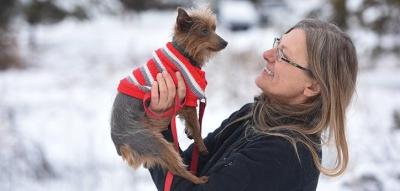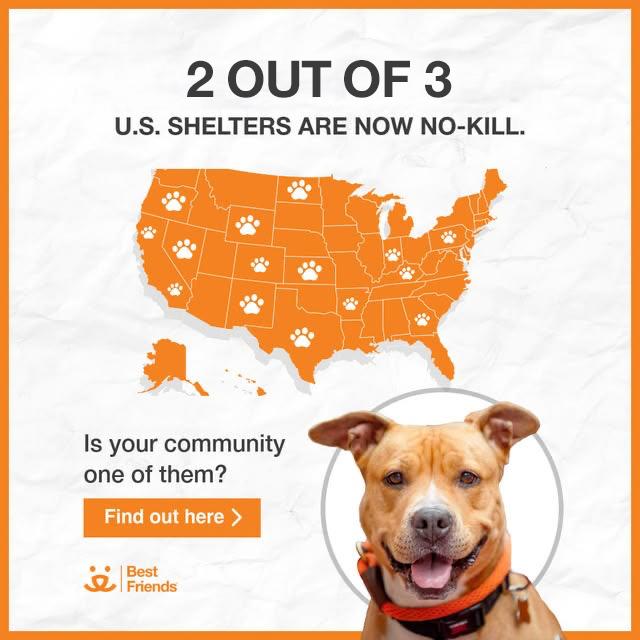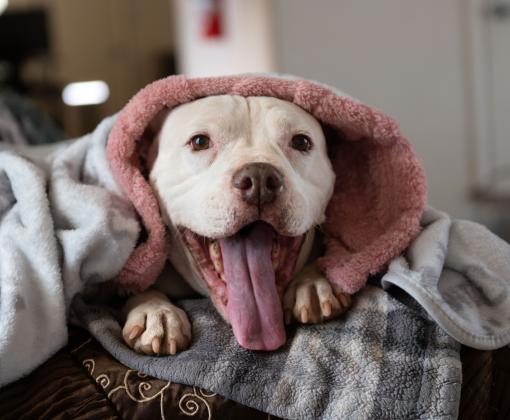
Keeping Dogs and Cats Warm and Safe in Winter
Cold weather can be hazardous to the health of cats and dogs, so here are a few things to consider when the season changes and the weather turns frigid:

See how your community is doing
Dogs and cats who are outside
- Check the condition of your pet’s coat (fur) periodically. Mats sometimes appear in winter and interfere with the coat’s ability to keep your pet warm. Plus, mats can be uncomfortable for your pet since they pull on the skin.
- If your pet spends time outside, make sure that water is available both indoors and outdoors. In the winter, use plastic instead of metal bowls and buckets. Your pet’s tongue may stick to metal, and he could injure himself trying to pull away. Another option is to purchase a heated water bowl for outdoor use.
- If your dog stays outside in cold weather for more than potty breaks, he will need a warm, dry place away from the elements. You’ll want to provide him with a doghouse that’s raised up off the ground, has a door flap to keep out drafts, and is equipped with dry, comfortable bedding.
- If you have a dog and she spends time in a fenced yard, watch your fence line to make sure that the snow doesn’t pile up so high that the dog can walk out of the yard.
- If you take care of community cats (ferals and strays), consider putting out some shelters for them during the coldest months. You can create simple, cozy shelters yourself using large Styrofoam coolers, plastic sheeting and tape. For more info about this DIY project, read “Protecting Community Cats in Winter.”
Antifreeze and ice-melting chemical dangers for pets
- Be on the lookout for antifreeze, which often leaks from cars into parking lots and puddles. Check the floor of your garage, too, for any telltale signs. Antifreeze is attractive to pets because it tastes sweet, but most brands are very poisonous and may be fatal. If your pet ingests even a small amount of antifreeze, contact your veterinarian immediately. Pet-safe antifreeze (which tastes bad) is now available, so consider buying it for your car.
- If you live in an area where there’s snow, wipe your dog’s feet after walking her. She may have picked up ice-melting chemicals, which can irritate and burn the dog’s pads. Some of these products are poisonous if ingested by pets. You may want to try dog boots, which protect your dog’s feet from sharp pieces of ice, as well as ice-melting products. For more about dog boots, see “How to Keep Dogs Warm in the Winter.”
Cats hiding under car hoods for protection and warmth
Use caution when you start your car in the cold winter months. If cats are left outside, they may climb under the car hood for protection from the cold. Before you climb into your car, slap the hood or open it for a quick look around.
